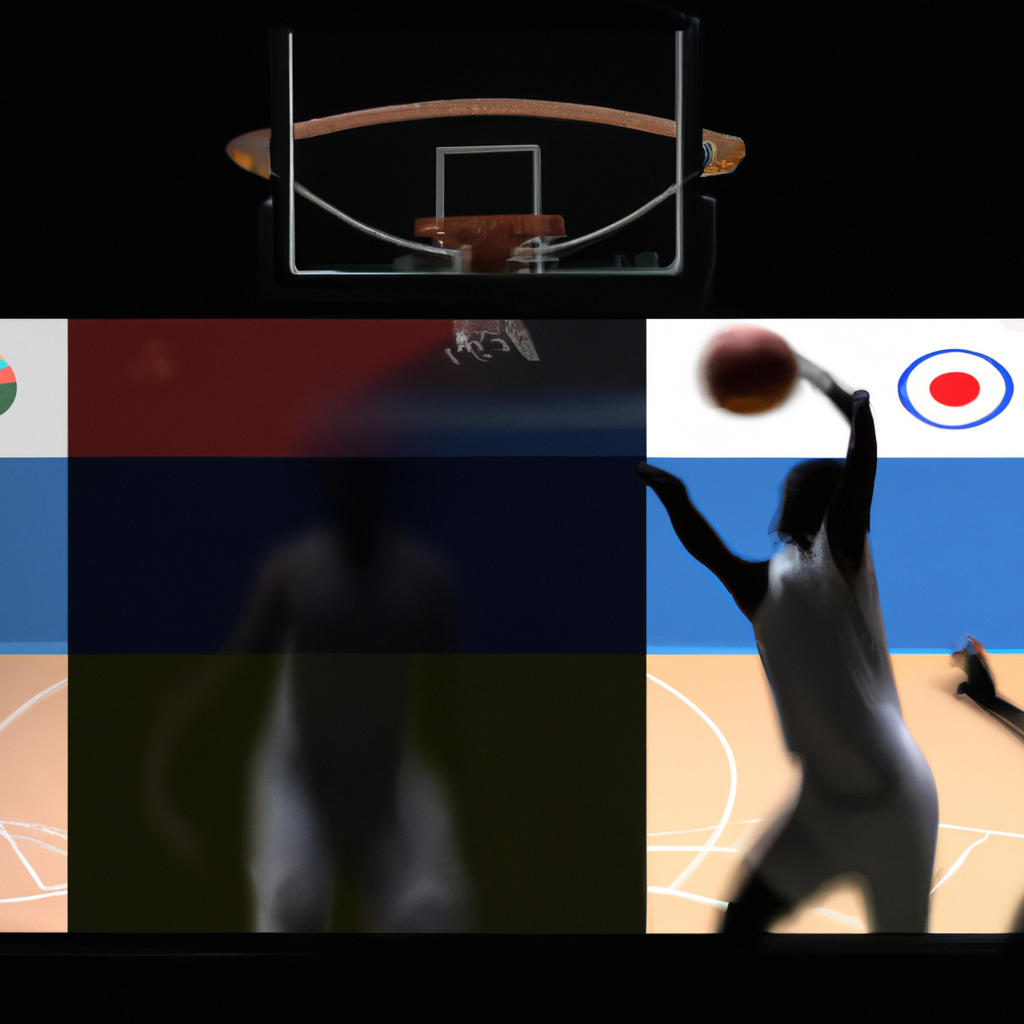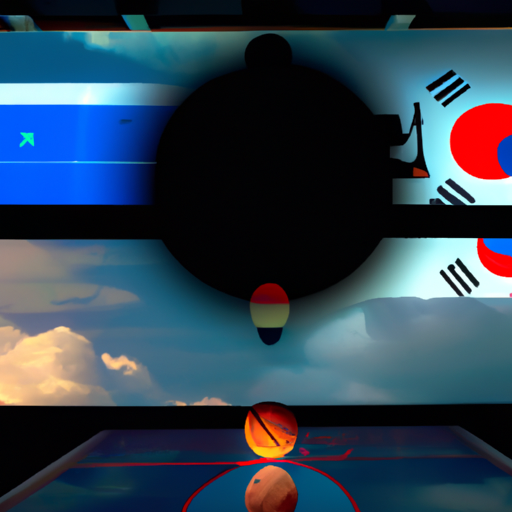Asian FIBA World Cup squads still in hunt for Olympic berth

Key Players to Watch in Asian FIBA World Cup Squads Aiming for Olympic Berth
The Asian FIBA World Cup squads are currently in the midst of a fierce competition, all vying for a coveted Olympic berth. As the tournament progresses, it becomes increasingly important to keep an eye on the key players who have the potential to make a significant impact on their respective teams.
One player to watch is Hamed Haddadi from Iran. Standing at an impressive 7’2″, Haddadi is a force to be reckoned with in the paint. With his towering presence, he dominates the boards and alters shots with his shot-blocking ability. Haddadi’s experience playing in the NBA and his leadership skills make him a valuable asset for Iran as they strive to secure a spot in the Olympics.
Another player who has been making waves in the Asian FIBA World Cup is Rui Hachimura from Japan. Hachimura, who currently plays for the Washington Wizards in the NBA, brings a unique blend of size, athleticism, and skill to the court. His ability to score from anywhere on the floor and his versatility make him a nightmare for opposing defenses. With Hachimura leading the way, Japan has a legitimate chance of clinching an Olympic berth.
Moving on to South Korea, one cannot overlook the impact that Ra Gun-ah can have on the team’s success. Known for his deadly three-point shooting, Ra has the ability to catch fire from beyond the arc and single-handedly change the course of a game. His shooting prowess combined with his experience playing in the Korean Basketball League make him a key player to watch as South Korea fights for an Olympic spot.
In the Philippines, all eyes are on Kai Sotto, a rising star in the basketball world. Standing at an impressive 7’3″, Sotto possesses a rare combination of size, skill, and basketball IQ. Despite his young age, he has already garnered attention from scouts around the world. Sotto’s potential to dominate in the paint and his ability to stretch the floor with his shooting make him a player to watch as the Philippines aims for an Olympic berth.
Lastly, we have Zhou Qi from China, a player who has already proven himself on the international stage. Standing at 7’1″, Zhou is a dominant force on both ends of the court. His shot-blocking ability and rebounding prowess make him a formidable presence in the paint. Additionally, Zhou’s offensive skills have improved over the years, making him a reliable scoring option for China. With Zhou leading the way, China has a strong chance of securing an Olympic berth.
As the Asian FIBA World Cup squads continue their quest for an Olympic berth, these key players will undoubtedly play a crucial role in their team’s success. Whether it’s dominating in the paint, scoring from beyond the arc, or providing leadership and experience, these players have the potential to make a significant impact. As fans, we can only wait and watch as these talented athletes battle it out on the court, hoping that their efforts will be rewarded with a ticket to the Olympics.
Strategies and Tactics Employed by Asian FIBA World Cup Squads in Pursuit of Olympic Qualification

The Asian FIBA World Cup squads are currently engaged in a fierce battle to secure a coveted Olympic berth. With only a limited number of spots available, these teams are employing various strategies and tactics to increase their chances of qualification.
One of the key strategies being employed by these squads is a focus on team chemistry and cohesion. Many of these teams have players who come from different professional leagues and have varying styles of play. To overcome this challenge, coaches are organizing training camps and friendly matches to allow the players to develop a better understanding of each other’s strengths and weaknesses. This emphasis on team unity is crucial in ensuring that the squad can perform at its best during the qualifying matches.
Another important tactic being utilized by these teams is a focus on defense. Asian teams are known for their disciplined defensive play, and this is no different in their pursuit of Olympic qualification. Coaches are implementing defensive systems that prioritize communication, positioning, and intensity. By stifling their opponents’ offense, these teams aim to create scoring opportunities through turnovers and fast breaks. This defensive mindset has proven to be effective in neutralizing the offensive firepower of their opponents and securing crucial victories.
In addition to defense, these squads are also employing innovative offensive strategies. Coaches are implementing intricate offensive sets that exploit the strengths of their players. This includes utilizing pick-and-roll plays, off-ball movement, and quick ball movement to create open shots. By diversifying their offensive options, these teams aim to keep their opponents guessing and create scoring opportunities from different areas of the court. This strategic approach has allowed Asian teams to compete against more physically dominant opponents and secure important victories.
Furthermore, these squads are also focusing on player development and talent identification. Coaches are investing time and resources in identifying young talents and providing them with opportunities to showcase their skills. By nurturing these talents, teams are ensuring a sustainable pipeline of skilled players who can contribute to their Olympic qualification efforts in the future. This long-term approach to player development is crucial in maintaining the competitiveness of Asian basketball on the global stage.
Lastly, these teams are also employing mental and psychological strategies to gain an edge over their opponents. Coaches are emphasizing the importance of mental toughness and resilience, instilling a winning mentality in their players. This includes teaching them how to handle pressure situations, stay focused during crucial moments, and bounce back from setbacks. By developing a strong mental fortitude, these teams are better equipped to handle the high-stakes nature of the Olympic qualification process.
In conclusion, the Asian FIBA World Cup squads are leaving no stone unturned in their pursuit of Olympic qualification. Through a combination of team chemistry, defensive prowess, offensive innovation, player development, and mental strategies, these teams are increasing their chances of securing a spot in the Olympics. As the competition intensifies, it will be fascinating to see which teams successfully navigate these strategies and tactics to achieve their ultimate goal of representing Asia on the Olympic stage.
Challenges Faced by Asian FIBA World Cup Squads in their Quest for an Olympic Berth
The Asian FIBA World Cup squads have been facing numerous challenges in their quest for an Olympic berth. While basketball is immensely popular in Asia, the competition in the region is fierce, and only a limited number of teams can secure a spot in the Olympics. This article will explore some of the challenges faced by these squads and the impact they have on their chances of qualifying for the prestigious event.
One of the major challenges faced by Asian FIBA World Cup squads is the lack of resources and funding. Unlike some of the powerhouse basketball nations, many Asian countries struggle to provide adequate financial support to their national teams. This lack of resources hampers their ability to organize training camps, hire top-notch coaches, and provide the necessary infrastructure for player development. As a result, these teams often find themselves at a disadvantage when competing against better-funded opponents.
Another challenge is the limited exposure to high-level competition. While basketball is growing in popularity across Asia, the level of competition in the region is still not on par with that of the European or American leagues. This lack of exposure to top-tier competition makes it difficult for Asian teams to gauge their true potential and identify areas for improvement. Additionally, it puts them at a disadvantage when facing teams that regularly compete against the best players in the world.
Furthermore, the geographical vastness of Asia poses a logistical challenge for these squads. Traveling long distances for games and tournaments can be physically and mentally exhausting for players. The time zone differences and jet lag can also affect their performance on the court. Moreover, the cost of travel and accommodation can be a burden for teams with limited financial resources, further hindering their ability to compete at the highest level.
Language barriers also present a challenge for Asian FIBA World Cup squads. In many cases, teams consist of players from different countries who may not speak a common language fluently. This can hinder effective communication on the court and impede team chemistry. It takes time for players to develop a shared understanding of each other’s playing styles and tendencies, which can be a disadvantage when facing teams that have been playing together for years.
Lastly, the lack of exposure and recognition for Asian players in international basketball can be demoralizing. Despite the talent and potential that exists in the region, Asian players often struggle to gain recognition and secure contracts with top professional leagues. This lack of exposure not only affects their individual careers but also hampers the overall development of basketball in Asia.
In conclusion, Asian FIBA World Cup squads face numerous challenges in their quest for an Olympic berth. The lack of resources, limited exposure to high-level competition, logistical difficulties, language barriers, and the lack of recognition for Asian players all contribute to the uphill battle these teams face. However, despite these challenges, Asian teams continue to strive for excellence and work towards securing a spot in the Olympics. With continued support and investment in basketball development, Asian squads can overcome these obstacles and make their mark on the international stage.

